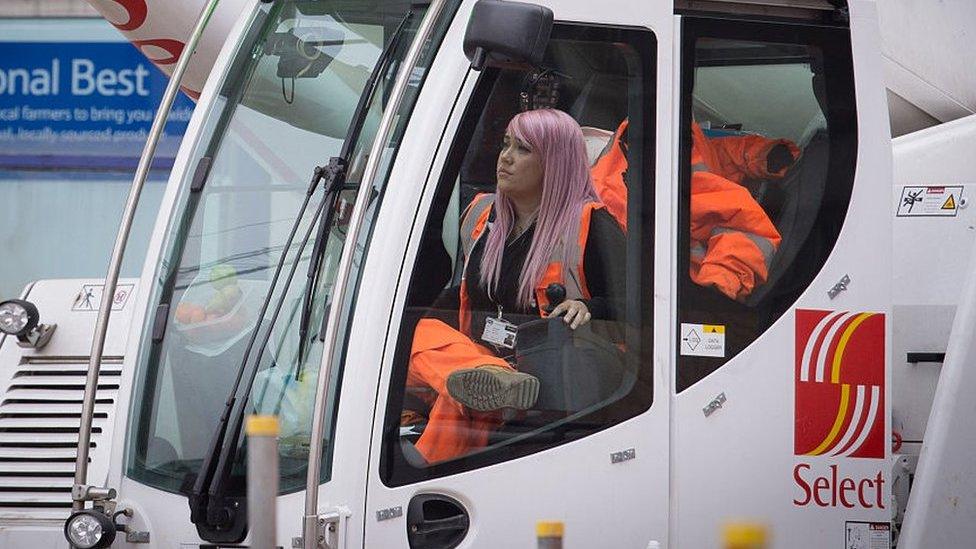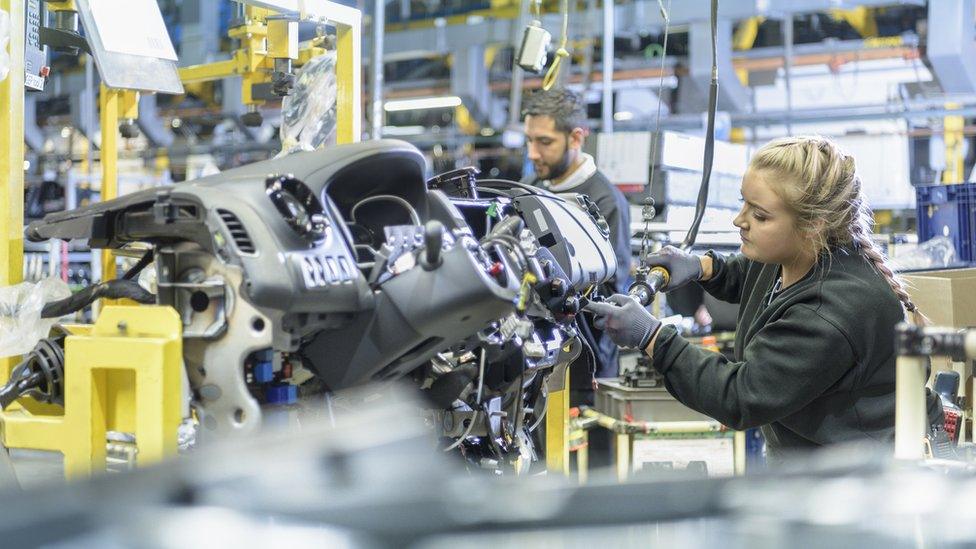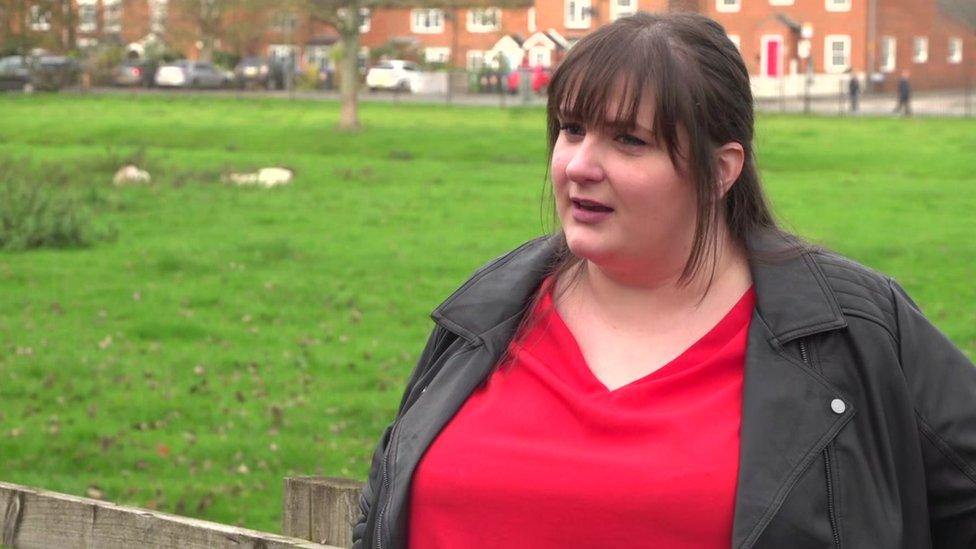Apprenticeships levy 'has failed on every measure', says HR body
- Published
- comments

Employer investment in training has fallen since the introduction of an apprenticeship levy, an HR body says.
The Chartered Institute of Personnel and Development (CIPD) said since the levy was introduced in 2017, apprenticeship starts have fallen and fewer have gone to young people.
"On all key measures the apprenticeship levy has failed," its boss said.
The chancellor is set to announce an additional £126m for traineeships in England at his Budget on Wednesday.
The study by the HR industry body found that total apprenticeship starts have fallen from 494,000 in 2016-17 to 322,500 in 2019-20.
The number of apprenticeships going to under-19s also fell from 122,800 to 76,300 in the same timeframe, said its report.
It suggested that without reform, the apprenticeship levy will have a damaging effect on investment in skills.
How does the apprenticeship levy work?
The apprenticeship levy takes 0.5% of the salary bill from major employers in England - with the intention of using the money to improve skills and provide training.
Any employer who spends more than £3m annually on wages has to put in 0.5% of its payroll above the £3m threshold. This money is then topped up with an extra 10% from government funds and kept in a digital account for that employer to deploy on its own training arrangements for apprentices.
Funds that are not used by the employer within 24 months expire and get passed back to the government.
Some bosses have criticised the scheme, saying rules on how the funded apprenticeships must be organised, with a certain number of hours spent on-the-job versus in a classroom, do not suit their workforce and make the scheme harder to implement.
'Handbrake on investment'
Peter Cheese, chief executive of the CIPD, said: "On all key measures the apprenticeship levy has failed and is even acting to constrain firms' investment in apprenticeships and skills more broadly.
"It appears to have achieved the opposite of its policy objectives. Without reform it will act as a handbrake on employer investment in skills, damaging firms' ability to recover from the pandemic."
He added that introducing more flexibility could see bosses fund their employees through technical or vocational courses in further education colleges, which do not currently fall under the scheme.
The HR body is calling on the government to announce it is reforming the apprenticeship levy into a more broad one for training at this week's Budget.
On Wednesday, Chancellor Rishi Sunak is set to announce a £126m "boost" for traineeships in England.
The scheme will include a new "flexi-job" apprenticeship that will enable apprentices to work with a number of different employers in one sector.
The chancellor's boost to existing apprenticeship and traineeship programmes will include playing up to double the current cash incentive to firms who take on an apprentice, regardless of age.
Currently, firms in England are given £2,000 for every new apprentice they take on under the age of 25, and £1,500 for those over 25, in addition to a £1,000 grant they are already getting under another project.
Mr Sunak will promise to increase the cash incentives for employers who take on any apprentice to £3,000.
Unemployment is at its highest level in almost five years, with younger and typically lower-paid workers bearing the brunt of job losses.
A Department for Education spokesman said: "The levy is an important part of our reforms to apprenticeships which are vital for driving our economic recovery.
"It supports employers of all sizes to invest in high-quality apprenticeship training. In 2020-21, funding available for investment in apprenticeships in England will remain around £2.5 billion - double that spent in 2010-11 in cash terms."
They added the department had already committed "to improve the working of the levy and will be making improvements in response to employers' feedback".

Do you employ apprentices? Are you an apprentice yourself? Please share your thoughts on the apprenticeships levy. Email haveyoursay@bbc.co.uk, external.
Please include a contact number if you are willing to speak to a BBC journalist. You can also get in touch in the following ways:
WhatsApp: +44 7756 165803
Tweet: @BBC_HaveYourSay, external
Please read our terms & conditions and privacy policy
If you are reading this page and can't see the form you will need to visit the mobile version of the BBC website to submit your question or comment or you can email us at HaveYourSay@bbc.co.uk, external. Please include your name, age and location with any submission.
Related topics
- Published27 February 2021

- Published19 November 2020

- Published13 October 2020
